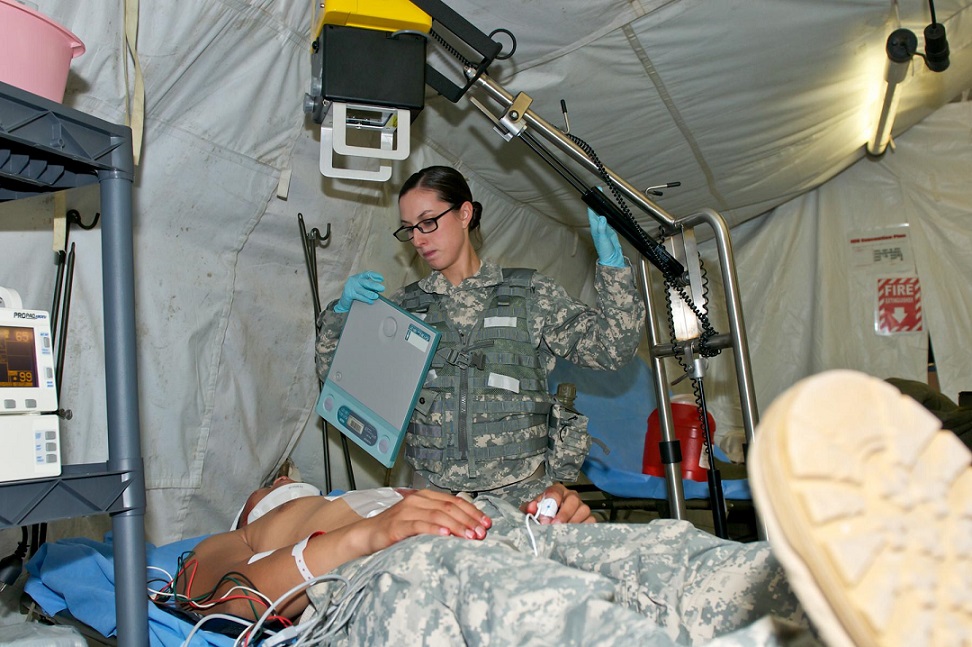This post is also available in:
 עברית (Hebrew)
עברית (Hebrew)
The demands of future battlefields will force the military medical community to prepare for operational environments that are vastly different. Enemy air superiority may not allow the U.S. military to fly critically wounded soldiers to well-equipped hospitals in far-off countries, so field hospitals may have to rely on new, robotic technology to save patients.
Robotic surgery, which is currently used in non-invasive procedures, could be adapted to meet the Army’s needs. U.S. Army physicians, located far from a field hospital, could soon be performing delicate, highly specialized surgery on wounded soldiers using robotics and other forms of telemedicine, reports military.com.
Army Surgeon General Lt. Gen. Nadja West said “We might not have the life-saving ‘golden hour’ evacuation system we have been accustomed to for the past 17 years.” “Our soldiers may be isolated for 72 hours or more, requiring prolonged field care if injured in an austere environment.”
The US Army recently performed its first robotic surgery at the William Beaumont Army Medical Center in El Paso, Texas, using the da Vinci Xi surgical system, the next frontier for minimally invasive surgery, developed by Intuitive Surgery The four-armed, minimally invasive robotic surgery system can be controlled by a surgeon using a high-definition 3D imaging system, which displays a magnified view of the patient’s anatomy.
The da Vinci Systems are not programmed to perform surgery on their own. Instead, the procedure is performed entirely by a surgeon who controls the system. The system uses specialized instrumentation, including a miniaturized surgical camera and wristed instruments, according to the company.
Using other forms of telehealth technology will allow a specialist to walk a medical professional through a critical procedure using satellite technology, West said.


























